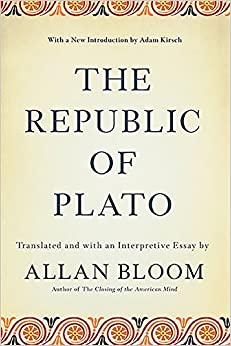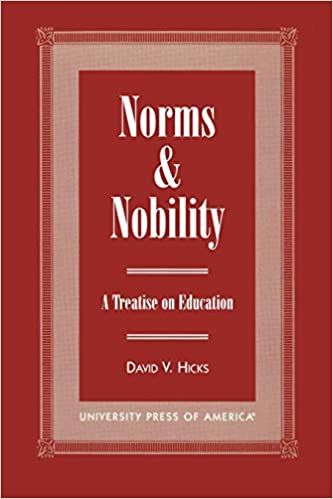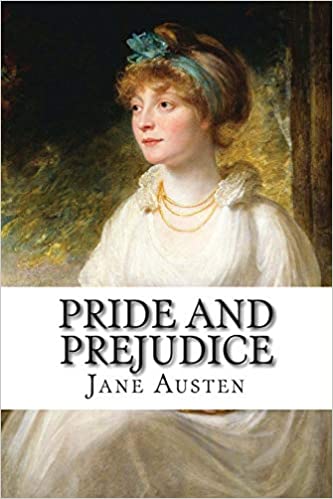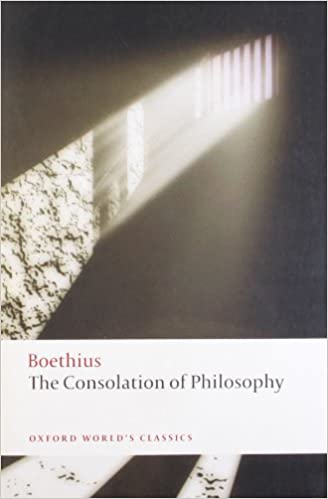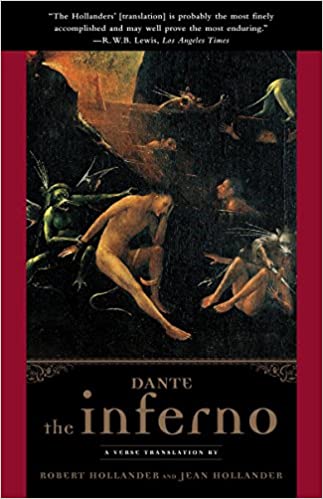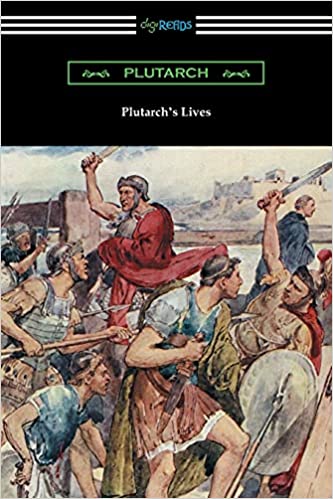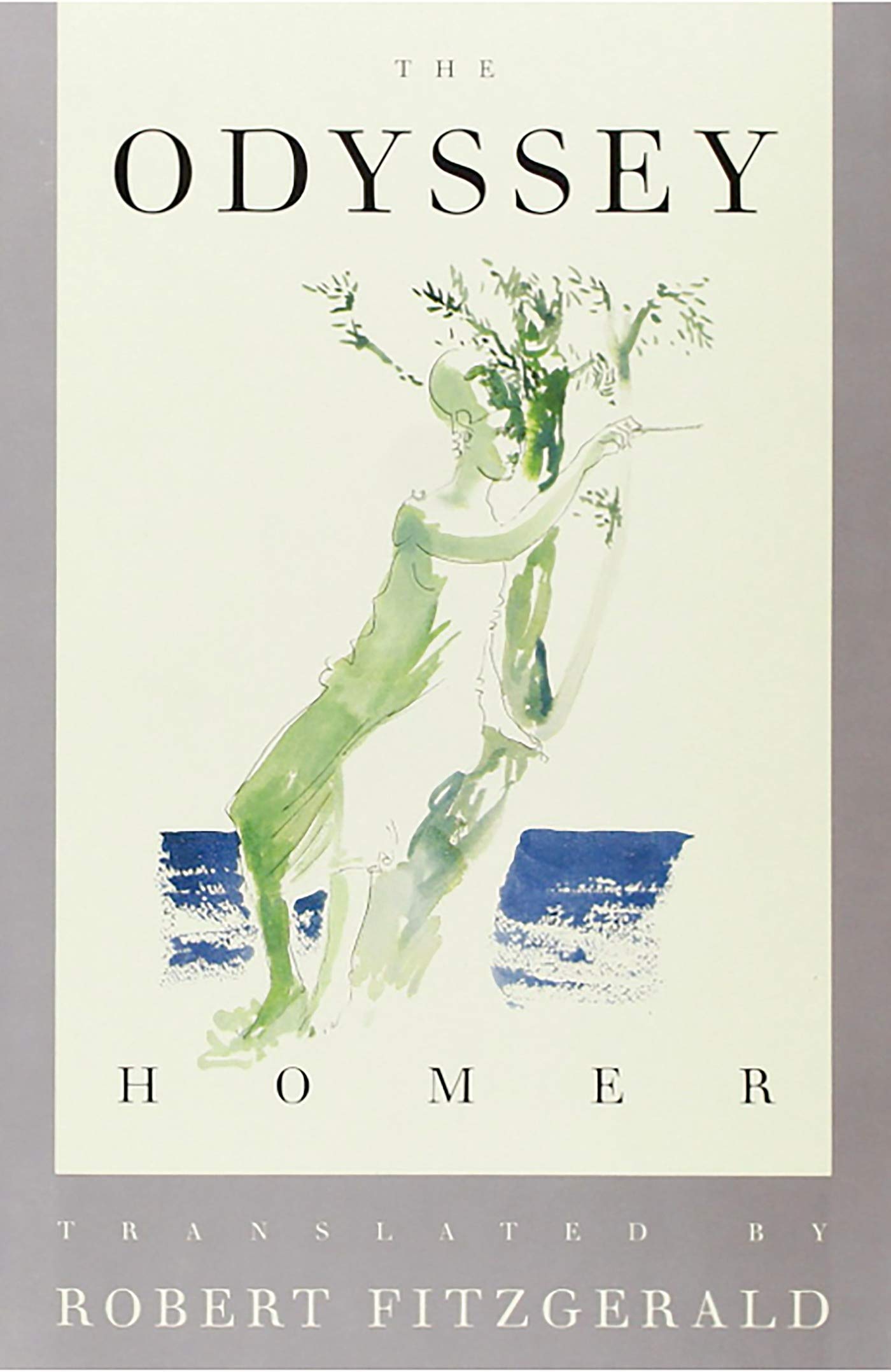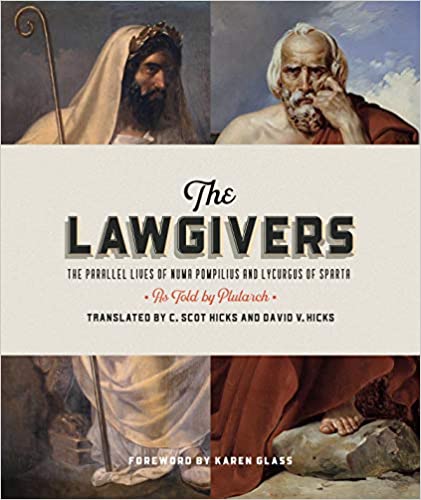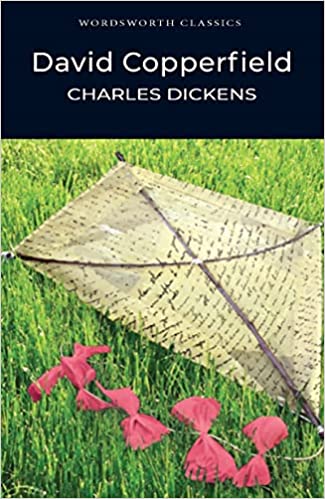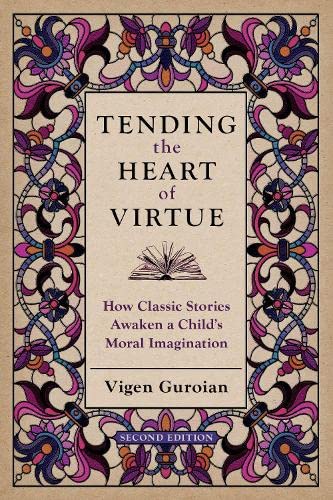The Republic of Plato
The definitive translation of Plato's Republic, the most influential text in the history of Western philosophy
Long regarded as the most accurate rendering of Plato's Republic that has yet been published, this widely acclaimed translation by Allan Bloom was the first to take a strictly literal approach. In addition to the annotated text, there is also a rich and valuable essay -- as well as indices -- which will enable readers to better understand the heart of Plato's intention.
More info →Norms and Nobility: A Treatise on Education
A reissue of a classic text, Norms and Nobility is a provocative reappraisal of classical education that offers a workable program for contemporary school reform. David Hicks contends that the classical tradition promotes a spirit of inquiry that is concerned with the development of style and conscience, which makes it an effective and meaningful form of education. Dismissing notions that classical education is elitist and irrelevant, Hicks argues that the classical tradition can meet the needs of our increasingly technological society as well as serve as a feasible model for mass education.
More info →Pride and Prejudice
Pride and Prejudice is a novel of manners by Jane Austen, first published in 1813. The story follows the main character, Elizabeth Bennet, as she deals with issues of manners, upbringing, morality, education, and marriage in the society of the landed gentry of the British Regency. Elizabeth is the second of five daughters of a country gentleman living near the fictional town of Meryton in Hertfordshire, near London.
Set in England in the early 19th century, Pride and Prejudice tells the story of Mr and Mrs Bennet's five unmarried daughters after the rich and eligible Mr Bingley and his status-conscious friend, Mr Darcy, have moved into their neighbourhood. While Bingley takes an immediate liking to the eldest Bennet daughter, Jane, Darcy has difficulty adapting to local society and repeatedly clashes with the second-eldest Bennet daughter, Elizabeth.
Though Austen set the story at the turn of the 19th century, it retains a fascination for modern readers, continuing near the top of lists of "most loved books." It has become one of the most popular novels in English literature, selling over 20 million copies, and receives considerable attention from literary scholars. Modern interest in the book has resulted in a number of dramatic adaptations and an abundance of novels and stories imitating Austen's memorable characters or themes.
More info →The Consolation of Philosophy
Boethius composed De Consolation Philosophiae in the sixth century A.D. while awaiting death by torture, condemned on a charge of plotting against Gothic rule, which he protested as manifestly unjust. Though a Christian, Boethius details the true end of life as the soul's knowledge of God, and consoles himself with the tenets of Greek philosophy, not with Christian precepts.
Written in a form called Meippean Satire that alternates between prose and verse, Boethius' work often consists of a story told by Ovid or Horace to illustrate the philosophy being expounded. The Consolation of Philosophy dominated the intellectual world of the Middle Ages; it inspired writers as diverse Thomas Aquinas, Jean de Meun, and Dante. In England it was rendered into Old English by Alfred the Great, into Middle English by Geoffrey Chaucer, and later Queen Elizabeth I made her own translation. The circumstances of composition, the heroic demeanor of the author, and the Meippean texture of part prose, part verse have been a fascination for students of philosophy, literature, and religion ever since.
More info →The Inferno (The Divine Comedy Series)
The epic grandeur of Dante’s masterpiece has inspired readers for 700 years, and has entered the human imagination. But the further we move from the late medieval world of Dante, the more a rich understanding and enjoyment of the poem depends on knowledgeable guidance. Robert Hollander, a renowned scholar and master teacher of Dante, and Jean Hollander, an accomplished poet, have written a beautifully accurate and clear verse translation of the first volume of Dante’s epic poem, the Divine Comedy. Featuring the original Italian text opposite the translation, this edition also offers an extensive and accessible introduction and generous commentaries that draw on centuries of scholarship as well as Robert Hollander’s own decades of teaching and research. The Hollander translation is the new standard in English of this essential work of world literature.
More info →Plutarch’s Lives (Volumes I and II)
“Lives” is a series of biographies of famous Greeks and Romans by the ancient Greek historian Plutarch who lived during the first and second century AD. The work consists of twenty-three paired biographies, one Greek and one Roman, and four unpaired, which explore the influence of character on the lives and destinies of important persons of Ancient Greece and Rome. Rather than providing strictly historical accounts, Plutarch was most concerned with capturing his subjects common moral virtues and failings. This volume includes the complete “Lives” in which you will find the biographies of the following persons: Theseus, Romulus, Lycurgus, Numa Pompilius, Solon, Poplicola, Themistocles, Camillus, Pericles, Fabius, Alcibiades, Coriolanus, Timoleon, Æmilius Paulus, Pelopidas, Marcellus, Aristides, Marcus Cato, Philopœmen, Flamininus, Pyrrhus, Caius Marius, Lysander, Sylla, Cimon, Lucullus, Nicias, Crassus, Sertorius, Eumenes, Agesilaus, Pompey, Alexander, Cæsar, Phocion, Cato the younger, Agis, Cleomenes, Tiberius Gracchus, Caius Gracchus, Demosthenes, Cicero, Demetrius, Antony, Dion, Marcus Brutus, Aratus, Artaxerxes, Galba, and Otho. Plutarch’s “Lives” remains today as one of the most important historical accounts of the classical period. This edition is printed on premium acid-free paper.
More info →The Odyssey, translated by Robert Fitzgerald
Robert Fitzgerald's translation of Homer's Odyssey is the best and best-loved modern translation of the greatest of all epic poems. Since 1961, this Odyssey has sold more than two million copies, and it is the standard translation for three generations of students and poets. Farrar, Straus and Giroux is delighted to publish a new edition of this classic work. Fitzgerald's supple verse is ideally suited to the story of Odysseus' long journey back to his wife and home after the Trojan War. Homer's tale of love, adventure, food and drink, sensual pleasure, and mortal danger reaches the English-language reader in all its glory.
Of the many translations published since World War II, only Fitzgerald's has won admiration as a great poem in English. The noted classicist D. S. Carne-Ross explains the many aspects of its artistry in his Introduction, written especially for this new edition.
More info →The Lawgivers: The Parallel lives of Numa Pompilius and Lycurgus of Sparta
Long considered an essential title in classical literature, Plutarch s Lives have, unfortunately, fallen out of favor among many contemporary readers and educators. Most translations have rendered Plutarch s original language, which is so energetic in the Greek, quite dryly in English, thus relegating these classic tales to the dusty bookshelves of specialists. However, this new translation by C. Scot Hicks and David V. Hicks (The Emperor s Handbook) brings Plutarch s original tales to life, making them accessible for today s readers and students thanks to their highly readable rendition of Plutarch s prose. Featuring thorough commentary on the historical context of these two great men, maps, illustrations, and more, The Lawgivers will introduce a new generation of readers to this truly essential and enjoyable writer.
More info →David Copperfield
David Copperfield by Charles Dickens. Introduction and Notes by Dr Adrienne Gavin, Canterbury Christ Church University College Illustrations by Hablot K. Browne (Phiz) Dickens wrote of David Copperfield: 'Of all my books I like this the best'. Millions of readers in almost every language on earth have subsequently come to share the author's own enthusiasm for this greatly loved classic, possibly because of its autobiographical form. Following the life of David through many sufferings and great adversity, the reader will also find many light-hearted moments in the company of a host of English fiction's greatest stars including Mr Micawber, Traddles, Uriah Heep, Creakle, Betsy Trotwood, and the Peggoty family.
More info →Tending the Heart of Virtue: How Classic Stories Awaken a Child’s Moral Imagination
From Pinocchio to The Chronicles of Narnia to Charlotte's Web, classic children's tales have shaped generations of young people. In recent years, homeschoolers and new classical schools have put these masterpieces of children's literature at the center of their curricula. And these stories continue to be embraced by parents, students, and educators alike.
In Tending the Heart of Virtue, Vigen Guroian illuminates the power of classic tales and their impact on the moral imagination. He demonstrates how these stories teach the virtues through vivid depictions of the struggle between good and evil, while he also unveils components of the good, the true, and the beautiful in plot and character. With clarity and elegance, Guroian reads deeply into the classic stories. He demonstrates how these stories challenge and enliven the moral imaginations of children. And he shows the reader how to get "inside" of classic stories and communicate their lessons to the child.
More info →
